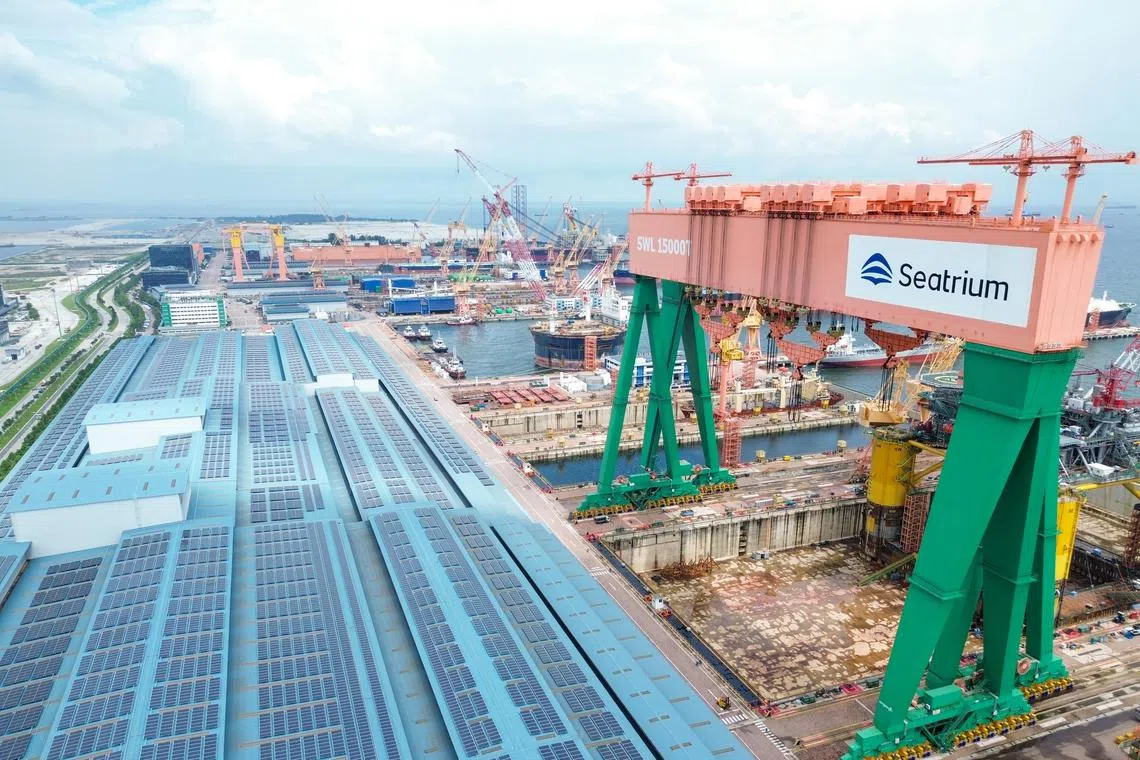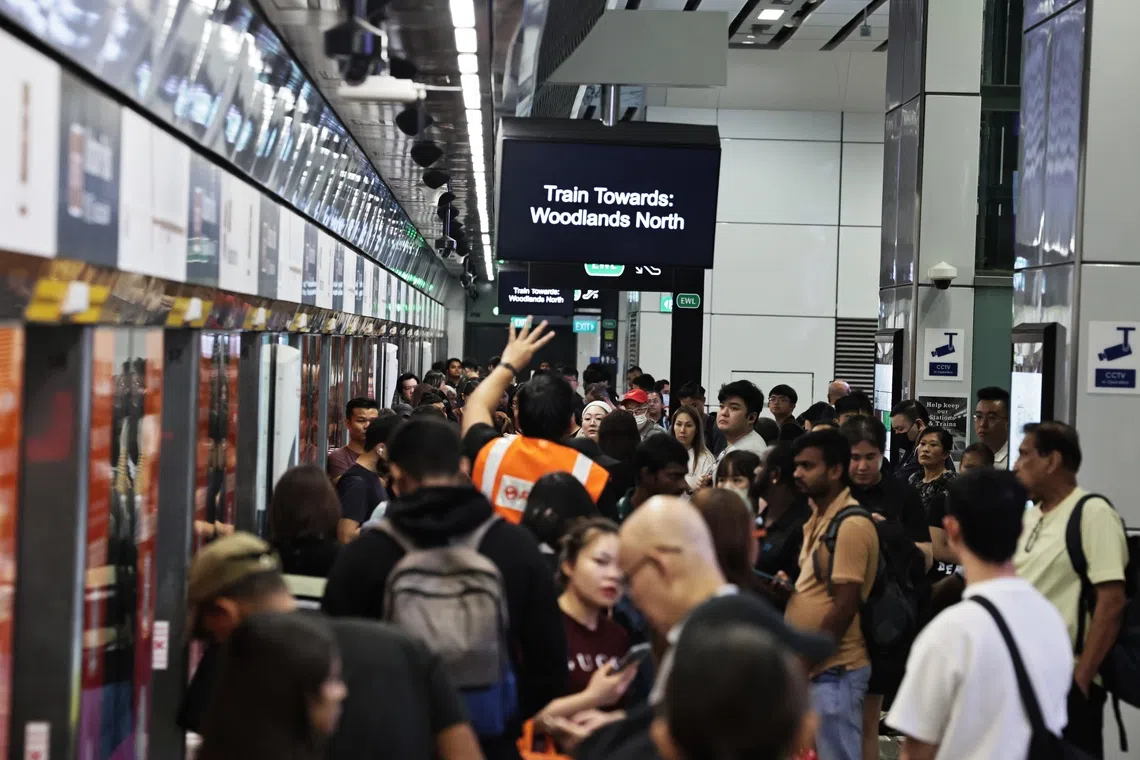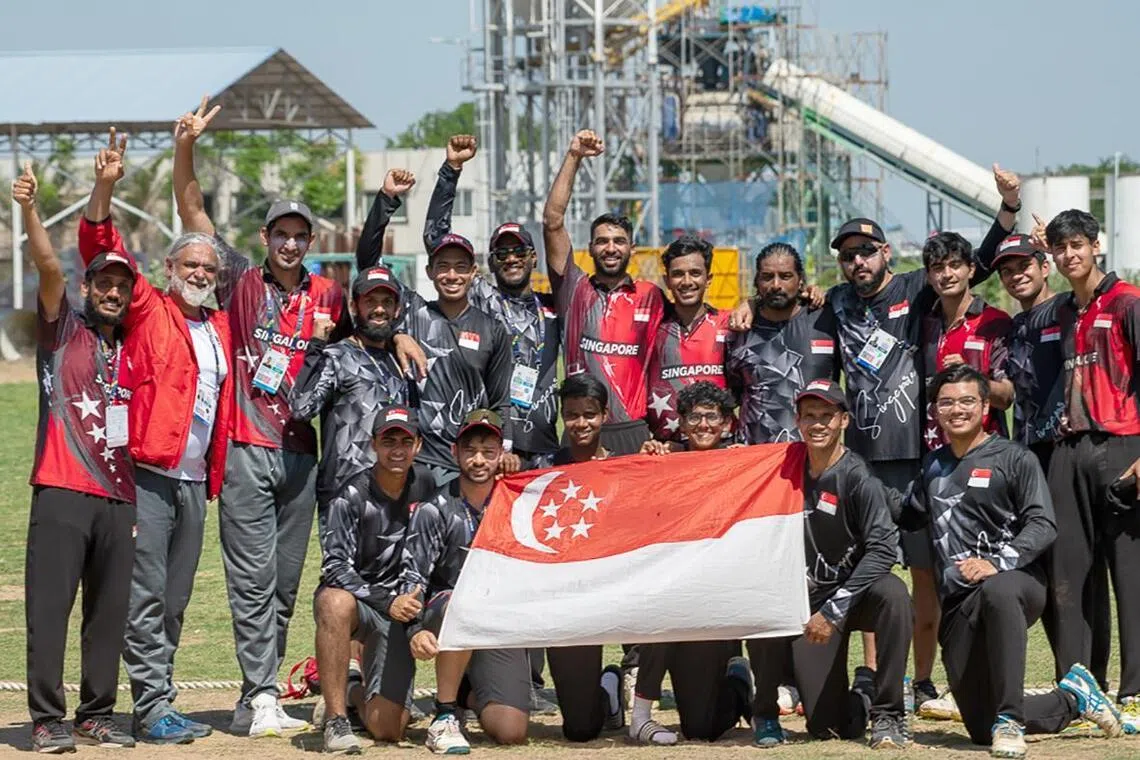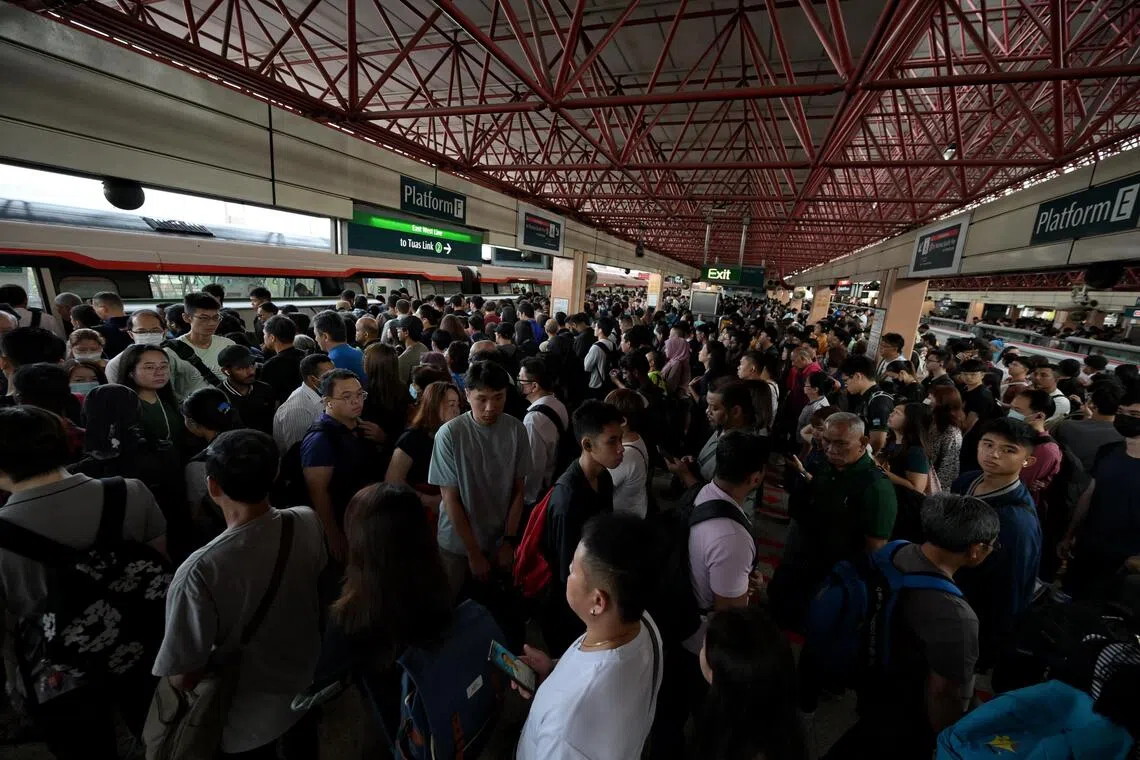SMRT, a $3m fine, and how governance oversight went off the rails
Beyond the headlines and the hefty penalty, the real lesson of SMRT’s costly EWL disruption lies in the slow, almost imperceptible drift of governance, where critical questions go unasked and the machinery of oversight lulls itself into complacency.
By
Zat Astha / 8 Jun 2025
On 25 September 2024, a seemingly routine MRT journey on Singapore’s East–West Line
derailed into one of its longest
service disruptions when a high-temperature reading went unheeded, allowing an overheated axle box to detach and slam into track infrastructure.
The incident incapacitated a 2.55 km section of rail, forced a six‑day halt in services between Boon Lay and Queenstown, and inconvenienced an estimated 2.6 million commuters. In the fallout, the Land Transport Authority levied a
hefty S$3 million fine on SMRT with regulators citing “operational and maintenance lapses” spanning delayed overhauls, unresolved system warnings, and fragmented oversight between operator and regulator.
The financial penalty collected will go to the Public Transport Fund to help lower-income families with their public transport expenditures.
The episode laid bare a pattern of weak governance: critical maintenance extensions were approved without documentation, recurring warning signals were habitually ignored, and coordination between operator and regulator broke down at decisive moments. For organisations that value resilience and public trust, this incident stands as a case study in how governance failures can multiply technical errors into system-wide crises.
Having studied the official investigation
report by Ministry of Transport’s Transport Safety Investigation Bureau in detail, we have distilled the incident’s most instructive governance failures — lessons that extend far beyond railways, and that every organisation should heed before complacency becomes crisis.
Lack of regulatory oversight
A fundamental governance lapse exposed by the incident is SMRT’s ability to extend critical maintenance intervals for train overhauls — sometimes by 25% or more beyond the manufacturer’s recommendations — without any binding requirement to seek regulatory approval or even to formally notify the relevant authority.
While the regulator was “aware” of SMRT’s internal waiver process, it exercised no active oversight or challenge function, effectively allowing SMRT to make risk-laden decisions in isolation.
This arrangement creates a systemic blind spot where the party most invested in operational continuity also unilaterally assesses, approves, and implements potentially risk-amplifying exceptions.
Such a model is inherently fragile: if SMRT’s internal risk assessments are flawed, or if organisational pressures incentivise extending maintenance cycles for cost or logistical reasons, there is no external check.
Governance best practice demands an arm’s-length, independent oversight of high-impact operational deviations — particularly in safety-critical sectors — yet this was notably absent until post-incident reforms forced a change.
Poor documentation and transparency
Another glaring governance failure evident in the report is SMRT’s inability to provide full documentation supporting its most consequential maintenance waivers. Specifically, when the investigation team requested records for approvals of overhaul extensions — especially for those exceeding 10% — SMRT could not furnish comprehensive evidence for several intervals, and some assessment records were either omitted entirely or never created.
This absence of clear, auditable documentation not only undermines the traceability of critical decisions but also precludes meaningful retrospective analysis or accountability.
When a decision leads to an operational failure or safety breach, stakeholders must be able to reconstruct who authorised the deviation, on what grounds, and what risk mitigation measures (if any) were considered.
Poor documentation practices, especially when coupled with self-approval, create an opaque environment where learning is lost and mistakes can be repeated. Strong governance cultures require not just records of what was done, but also why — embedding a discipline of transparency into every risk-related decision.
Deviation without clear rationale
The report highlights that SMRT routinely deviated from the maintenance schedule and inspection intervals recommended by the train manufacturer.
In some cases, inspections and overhauls were delayed or conducted less frequently than prescribed; in others, steps recommended by the manufacturer were simply omitted. More troublingly, SMRT could not produce records explaining the rationale for these departures from established technical standards.
While operational adaptation is sometimes necessary, robust governance requires that any deviation from a recognised standard is both justified and documented — ideally with supporting data, risk analysis, and an explicit evaluation of potential impacts.
By contrast, undocumented and unreviewed departures not only dilute the integrity of safety and quality regimes, but also introduce organisational amnesia: no one, years later, can explain why something was done or defend the reasoning behind it. In safety-critical industries, such casual divergence from expert guidelines is a recipe for accumulated risk and eventual crisis.
Failure of detection and response processes
A deeper governance issue underscored by this incident is the failure to establish robust systems for detecting, escalating, and responding to early warning signals — especially when those signals are ambiguous or plagued by technical issues.
The Hotbox system, installed to flag potentially catastrophic axle overheating, repeatedly issued “Null ID” warnings, which operational staff habitually dismissed as false alarms due to a lack of clear protocols or actionable guidance.
This normalisation of technical glitches, combined with inadequate training and a lack of follow-through on persistent feedback, meant that genuine safety alerts could be — and were — overlooked. The failure to resolve recurring detection system faults reflects weak internal escalation processes and an organisational culture that does not sufficiently prioritise closure of operational anomalies.
In essence, SMRT’s detection and response loop was broken: system faults were tolerated rather than fixed, and staff learned to ignore rather than investigate. This passive approach undermines the very purpose of safety systems and leaves organisations exposed to preventable disasters.
Desensitisation and poor safety culture
A less tangible but equally pernicious governance issue is the gradual desensitisation of staff to alarms and system anomalies — a direct result of unresolved technical faults and weak safety culture.
Over time, as Null ID errors became routine and went unaddressed by management, frontline staff began to treat these warnings as background noise, discounting or ignoring alerts that should have triggered immediate action. This phenomenon — sometimes described as “alarm fatigue” — signals a breakdown in the psychological contract between workers and their organisation, in which vigilance is neither valued nor enforced.
A culture where it is acceptable to “work around” warning systems, or to assume that errors are harmless without investigation, inevitably erodes collective attention to risk. Effective governance demands an environment where all anomalies are treated seriously until proven benign, and where systemic patterns of failure prompt urgent, organisation-wide learning and remediation.
Regulator’s passive role
The investigation also exposes a broader governance weakness in the passive, after-the-fact posture adopted by the regulatory authority.
Despite being aware of SMRT’s ad hoc extension of overhaul intervals and other maintenance deviations, the regulator imposed no requirements for prior notification, audit, or approval — effectively rubber-stamping SMRT’s risk assessments by omission.
Meaningful reforms, including mandatory reporting of overhaul extensions, enhanced documentation, and strengthened audit processes, only emerged after the incident — an all-too-familiar pattern of “governance by hindsight.”
This reactive approach betrays a lack of anticipatory oversight and undermines the principle of the regulator as a proactive guardian of public safety and service reliability. Organisations in high-stakes sectors must embed governance practices that prioritise early intervention, scenario planning, and continuous oversight — not wait for crises to force improvement.
When regulators act only after failure, public trust and organisational resilience both suffer.
Lack of industry-wide learning
Beyond the internal failings of SMRT and regulator, the report also highlights a sector-wide governance gap: the lack of structured, compulsory feedback loops between manufacturers, operators, and authorities after trains are delivered and in service.
The investigation notes that manufacturers are generally not obliged to inform operators or regulators about emerging technical or safety concerns discovered post-delivery, and collaboration remains voluntary and inconsistent.
This siloed approach impedes system-wide learning and the early identification of failure modes that may recur across different contexts or fleets. In sectors where latent design or operational flaws can have catastrophic consequences, strong governance requires mandatory, routine sharing of safety and reliability data across all stakeholders — manufacturers, operators, and regulators alike.
Failure to do so turns every operator into an isolated experiment, increases the likelihood of repeat incidents, and wastes opportunities for pre-emptive action and sector-wide improvement.
Pre-existing gaps
Ironically, perhaps the most telling evidence of governance shortcomings is the flurry of corrective actions taken only after the incident had already caused substantial operational, financial, and reputational damage.
These included immediate fleet-wide overhauls, rectification of the Hotbox system’s identification failures, procedural changes to reporting and escalation, and newly mandated regulator audits and approvals.
None of these interventions were in place beforehand — despite evidence of their necessity — which highlights a persistent gap between documented policy and lived practice. Effective governance is not merely a matter of ticking boxes or conducting investigations after the fact; it is about maintaining a continuous, self-critical vigilance that surfaces and addresses emerging risks before they metastasise into full-blown crises.
The incident thus stands as a case study in the perils of complacency, delayed learning, and the dangers of relying on reactive rather than proactive systems of oversight and improvement.
ST PHOTO: LIM YAOHUI
The Straits Times
Ultimately, the East–West Line incident is not simply a story of mechanical failure or regulatory misstep; it is a meditation on what happens when the habits of organisations drift quietly away from their own best intentions.
At its core, governance is not a collection of policies or the performance of compliance for its own sake. It is a culture — an ethic — that must be renewed with every decision, every documented rationale, every moment when convenience beckons louder than care.
Organisations do not falter all at once. They accumulate risk by degrees: a missing record here, a disregarded warning there, a waiver approved with no scrutiny because it is easier not to ask difficult questions. What happened on the tracks that September morning was not the work of one individual or one bad day, but the logical end of patterns that had become invisible through routine.
If there is a lesson to be drawn, it is that governance is a living practice, not a checklist to be filed and forgotten. The most resilient organisations are those that interrogate their own decisions, welcome discomfort, and preserve the thread of memory and reasoning even as teams and eras change. They understand that trust — public, internal, and regulatory — is not a fixed asset, but a resource renewed only through the daily, often unseen, discipline of doing things right even when it is inconvenient.
In studying this incident, we are reminded that the consequences of neglect are never just operational — they ripple through public confidence, institutional culture, and the shared sense of what it means to act with responsibility.
The real work of governance is unglamorous, difficult, and ongoing. It is the work of building systems that are honest with themselves, alert to the smallest signals, and humble enough to know that the gravest danger is not the crisis we see coming, but the one we quietly allow.















